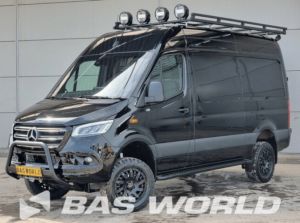
What Should Power Your Next Industrial Truck: Gas, Diesel, or Electric?
Choosing the engines powering your next heavy hauling industrial trucks is kind of a big deal if you want stuff moved around your yard or worksite reliably!
But when faced with options like conventional diesel, gas motors gunning for top spot, or whispers of an electric future…deciding the best power source gets overwhelming fast.
After all, you gotta balance serious muscle moving hefty cargo tons against budgets battling higher fuel prices and maintenance. Not to mention keeping the emissions police off your back as regulations tighten for heavy industry rig pollution.
It’s a lot to weigh when upgrading your fleet! But stress less – we’ll overview the key power source pros and cons.
Diesel Reigns Supreme (For Now)
The incumbent diesel has dominated industrial truck fleets for decades…and won’t give up its throne easily!
No surprise diesel has staying power – it packs way more punch lugging intensive loads compared to other liquid fuels. More torque muscle always equals more serious pulling capability, right? So if your transporters face the toughest duty cycles heaving industrial loads across yards or work sites, most experts still prescribe sticking with old, reliable diesel.
Diesel does gulp down more dollars per gallon than other options – that’s just reality. But modern Tier 4 compliant engines slash previous emissions substantially, helping ease tightening environmental regs. Payload capacity makes up for higher fuel costs anyway if your duty cycle demands intensive 15-50 ton burdens.
Maintenance needs to stay a bit loftier on diesel engines, too, however. More complex mechanical bits paired with higher pressures equal more opportunities for long-term issues. From filters to pumps, belts, fluids, and more – stocking extra diesel parts ensures less painful repairs when breakages happen. And they will! Having ricambi camion ready in-house prevents annoying downtimes waiting on orders. But for heavy industry leaders like Terberg designing terminal tractors okays, they’ve built durable diesels working reliably for over 250,000 miles no sweat.
Gas Closing In
Don’t sleep on gasoline powered industrial trucks staging a real comeback either! Straight gasoline ditched industrial trucking years ago – the juice couldn’t compete against diesel’s brute force. But newer fuel-injected gas V8s and tuned turbos finally pack enough punch at lighter 10-15 ton tow ratings.
Upstart outfit AMP Trucks claims their turbocharged gas motors save operators 30-50% running costs over diesels averaging 5-7 mpg without power compromises. And gasoline plays far nicer maintenance-wise too – no finicky emissions control systems or mandated DEF making mechanics miserable. Less breakdown drama means less downtime disasters!
If your transport routes involve shorter distances or faster pace movements (versus grueling long hauls), gas might be an economic ace up your sleeve. Obviously, gas motors still can’t outmuscle diesels taking the heaviest abuse. But for medium duty utility rigs shuttling lighter 5-15 ton rated stacks, gas warrants consideration calculus.
An Electric Future?
Electric trucks emerging lately offer a wildcard option too – whispering promises of an emissions-free, low maintenance future if yards buy into battery power. Make no mistake – electric industrial trucks remain rare…for now, at least. But progressive outfits like IKEA and Amazon pilot e-truck fleets anticipating diesels eventual decline.
Take Swedish upstart Einride who rolled out early all electric “T-pods” for short regional haul container transit. Their modern autonomous cab-less vehicles promise 65% operating cost savings and way lower maintenance thanks to 200 kWh battery packs powering quiet 200 mile ranges.
So far, embryonic charging infrastructure slows radical e-truck adoption, with “fast charging” still needing 30-60 minutes. But Einride’s small winding routes staying close to home terminals avoid range anxiety, proving electric viability.
Keep electric models on your radar – as battery densities and quick charging tech keeps improving, e-trucks make way more fiscal sense. Until then, specialized short distance metro routes probably see fastest eco adoption. But don’t bet your whole fleet on electrons…yet.
True Ownership Costs
Okay, so pros and cons clearly angle advantages towards certain power trains – your engine choice remains situational. But a TRUE total cost ownership breakdown projecting long run costs is mandatory before signing any industrial truck deals. Reality checks like:
5 year fuel and fluid maintenance costs
Engine/powertrain lifespan estimates before major overhauls
Finance terms/interest rates (if applicable)
Insurance premiums on drivetrain assets
Local emissions regulations and expected changes
Resale value projections down the road
Crunch the actual duty cycle, routes, and service expectations at YOUR property. There’s no universal industrial truck power source winner. Custom spec’ing your rigs using precise operational data and cost modeling is the only way to pick perfect power matches with fiscal confidence!
The future keeps moving towards electricity across transportation spheres. But industrial yards live in the high payload present, where versatile diesel and gasoline power still clearly provide the most economical brawn for intensive goods movement. Still, keep an eye on rapid battery tech improvements as e-options gain ground in coming decades!
The post What Should Power Your Next Industrial Truck: Gas, Diesel, or Electric? appeared first on My Car Heaven.

